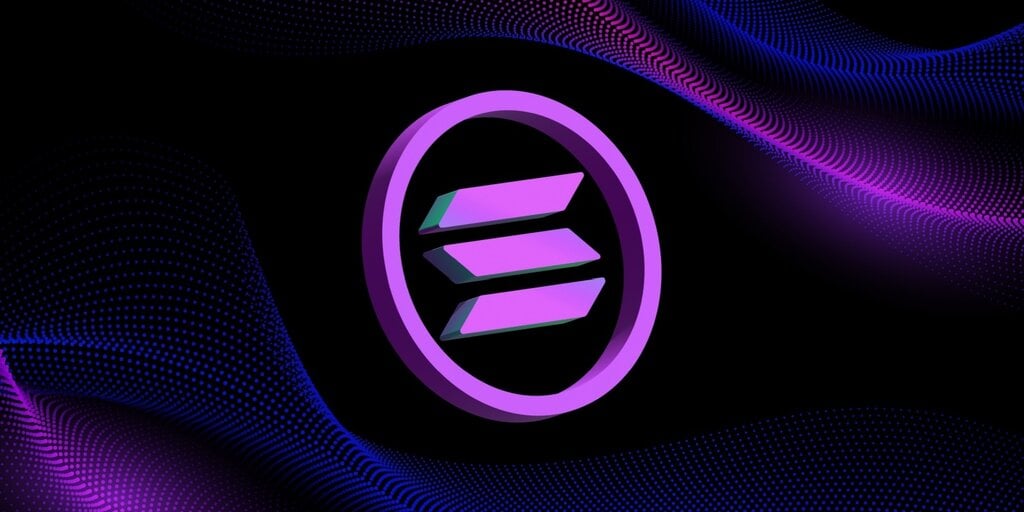MetaMask may already be a go-to name for millions of crypto users, but the popular digital wallet could potentially reach a much wider audience as it begins to expand beyond Ethereum—starting with Bitcoin.
Whether on networks like Bitcoin or Solana, users are increasingly exploring decentralized finance, or DeFi, across a broader range of ecosystems.
Christian Montoya, Consensys’ product lead for MetaMask Multichain, acknowledged the trend in an interview with Decrypt—and said MetaMask has been building in this direction for some time. (Disclosure: Consensys is one of 22 investors in an editorially independent Decrypt).
“Obviously, MetaMask is the O.G. Ethereum wallet, and it was built for Ethereum,” he said. “But we've been exploring for quite a while how we can expand beyond that.”
Earlier this month, Consensys advertised a job posting for a product manager responsible for MetaMask’s “end-to-end Bitcoin experience,” designing and delivering potential future products.
The posting references experience with Ordinals and Runes—Bitcoin's equivalents of NFT and meme coin protocols, respectively—as a plus. And while “anything is on the table,” Montoya said basic Bitcoin functionality will undoubtedly be the starting point.
“There's a lot of different things that make up Bitcoin’s ecosystem, and it would be very difficult for any wallet to try to capture all of that,” Montoya said. “What we're really looking for is someone who can make strategic decisions about what the most important things to explore are.”
Created by Consensys in 2016, MetaMask became a mainstay for many in the cryptosphere when Ethereum NFTs sold at eye-popping valuations in 2021 and 2022.
But Ethereum isn't necessarily the epicenter of the crypto ecosystem anymore. As the popularity of high-value NFTs faded, meme coins rapidly took their place last year—and that ecosystem flourished on Solana instead of Ethereum, thanks to low costs and speedy transactions. DeFi has gained traction on Bitcoin, as well.
Ethereum has also faced heavy criticism over the last year. While Bitcoin and Solana have both seen surging attention, and the prices of both have jumped to all-time highs within the last week alone, ETH stagnated and has remained well short of its 2021 price peak.
It's an ecosystem in turmoil: Investors and builders alike are frustrated at the languid price action, with some pointing to a lack of engagement by the Ethereum Foundation or the unexpected value drain of layer-2 networks contributing to the situation.
Just recently, the Foundation committed to various changes, with Ethereum creator Vitalik Buterin adopting a more "degen" personality—a "wartime" vibe, as some have described it. Buterin's tone shift has widely been seen as an attempt to rally his troops and compete with the vibrancy of the Solana community, among others.
Going multi-chain
This isn't the first time that MetaMask has enabled exploration of other crypto ecosystems, though previous efforts were fueled by external developers.
In 2023, the digital wallet launched its MetaMask Snaps feature. It allows users to add community-developed functionality, such as Solflare’s Snap for managing Solana-based tokens and NFTs, or Leap’s Snap for interacting with Cosmos’ Internet of Things ecosystem.
At the same time, Snaps allowed MetaMask developers to begin modularizing the wallet’s codebase, Montoya said.
Among features stemming from the internal work, MetaMask will release a cross-chain API later this year, allowing decentralized apps to connect and operate across multiple networks simultaneously, he said.
“The dapps that developers can build today are somewhat limited by this legacy paradigm, which is one account, one network at a time,” Montoya said, adding that the new API will support “at least 50 different non-EVM networks” already enabled through Snaps.
While MetaMask started moving full steam ahead with its multi-chain approach around two years ago, Montoya said the strategy was validated by projects issuing assets across different networks within the past year.
Pudgy Penguins, the second-largest Ethereum NFT collection by market cap, for example, launched its PENGU token on Solana last month.
But after being the Ethereum wallet for so long, will this shift be too little too late for MetaMask? Multi-chain rivals have taken hold in recent years and are gaining steam.
The NFT marketplace Magic Eden, after first being built on Solana, went multi-chain in 2022. A year later, it debuted a cross-chain wallet supporting Bitcoin, Ethereum, Solana, and the Ethereum scaling network Polygon. That wallet was the exclusive way that Magic Eden traders could claim the recent ME token drop.
Phantom, which also supports Bitcoin Ordinals and BRC-20 meme coins, as well as Ethereum and scaling networks like Base, announced a $150 million Series C fundraising round last week. The wallet has gained substantial adoption among meme coin traders in recent years amid constant speculation over a potential Phantom token drop—which the company has denied.
In the Series C announcement, Phantom said that it had achieved 15 million monthly active users (MAUs). Meanwhile, Consensys reported that MetaMask had 30 million MAUs in January 2024. The company did not have newer data available to share for this story.
Attempts to forge a path forward across a multi-chain ecosystem remain fragmented, with more development needed to scale toward mass adoption. But one analyst said that MetaMask's shift could be a step in the right direction.
“No single chain can currently handle the throughput needed for a global, simultaneous, viral event,” VanEck Head of Digital Asset Research Matthew Sigel told Decrypt. “[MetaMask’s] move seems an acknowledgment of that reality.”
Edited by Sebastian Sinclair and Andrew Hayward
Daily Debrief Newsletter
Start every day with the top news stories right now, plus original features, a podcast, videos and more.

 7 months ago
60
7 months ago
60




 English (US) ·
English (US) ·